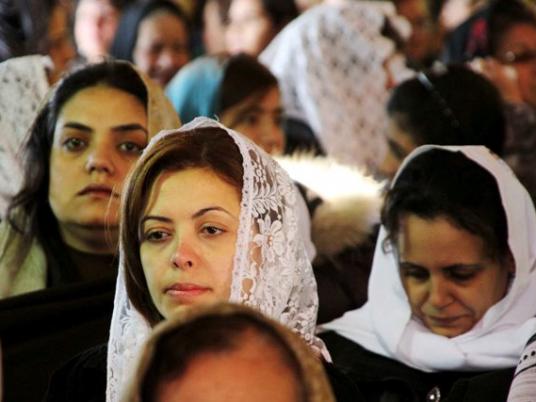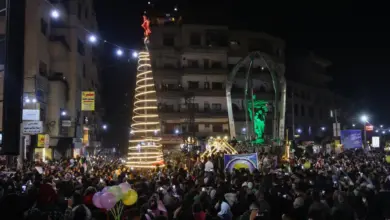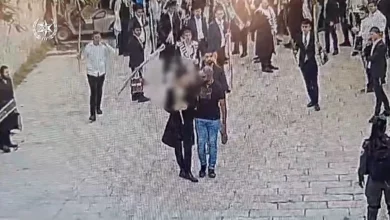
Privately-owned dailies are still running follow-ups on last week’s police raids of NGOs accused of illegally receiving foreign funds. The government has been investigating 17 Egyptian and international NGOs. Al-Shorouk, a privately-owned daily, leads with a headline that reads, “Tantawi calms Washington down after the civil society raids’ earthquake.” Al-Shorouk reports about the Supreme Council of the Armed Forces’ message on Facebook with regard to the raids, in which it claimed that the issue is in the hands of “Egypt’s great judiciary.” The paper also reports that US Defense Minister Leon Panetta contacted Field Marshal Hussein Tantawi, head of the SCAF, to express his concerns about the raids. Tantawi is reported as promising Panetta to stop the raids and let the NGOs resume their work.
The daily, privately-owned Al-Tahrir picks up on the conversation between Tantawi and Panetta under a headline that reads, “25 minutes between Panetta and Tantawi.” The story reports that during the 25-minute conversation between the two leaders, Panetta told Tantawi that he is concerned with these raids and thanked him for ordering to stop them immediately. He confirmed the important security ties between the two countries and the US commitment to their strategic partnership in the region that will continue throughout Egypt’s democratic transition.
The daily Youm7, also privately-owned, reported about the NGOs’ intention to raise the issue before the United Nations and the African Court for Human Rights. Meanwhile, Nasser Amin, head of the Arab Center for the Independence of the Judiciary, one of the raided NGOs, decided to resume the activities of his organization from the pavement facing his sealed offices. “I refused to take back the sealed premises in objection to its illegal closure,” said Amin in an interview with Youm7.
The Muslim-Brotherhood’s Freedom and Justice party daily made sure to run a front page statement by the party Secretary General Saad al-Katatny denouncing the raids. “The old regime never raided organizations like this. We would never have expected this to happen after the 25 January revolution, especially as these organizations have been receiving funding for a long time,” he told the paper. Activists in the NGOs circles have been denouncing some Islamists’ comments about the raids, most notably the Jama’a al-Islamiya statements about their welcoming of “objective investigations over NGOs receiving foreign funds.”
The story has no place in the front pages of state-run dailies.
The beginning of 2012 brings back the memory of the Two Saints Church bombing in Alexandria that claimed at least 24 lives. Stories about sectarian issues and national unity also prevailed in front pages today.
The state-run Al-Ahram leads with a story under the headline, “The army, the police and the people ‘one hand’ in protecting churches.” The story reports about the security plan designed by the Interior Ministry to protect churches, in collaboration with youth and members of civil society.
The Freedom and Justice daily leads with the headline, “The Coptic church welcomes the Brotherhood’s initiative to protect churches.” The story quotes priests from the Coptic church as saying that the initiative reflects the good intentions of the group. The story also mentions the demands by some Coptic groups such as Free Copts and Copts Without Restrictions to object to the presence of representatives from the SCAF, Salafi groups or the Muslim Brotherhood in the new year mass. These groups consider the SCAF responsible for the violence that led to the death of at least 27 people, mostly Copts, as their march to the Maspero state TV building in October was forcibly dispersed by the army. The story reports that the church refused their demand, claiming that no group can impose order on who the church should receive. The story closes with an unrelated paragraph about a Copt living abroad who reportedly sent a message to Israel’s Prime Minister Benjamin Netanyahu, saying that “Israel is considered the symbol of freedom of religion and pluralism at the time when Egypt’s Christians are subjected to religious discrimination due to the intolerance of the Arab Muslim settlers who are occupying Egypt.”
Ibrahim Eissa, the renowned media figure and staunch critic of the SCAF, writes about sectarianism in his daily column in Al-Tahrir, the paper he edits. He recounts the story of Mohamed Fouad, a candidate for the Egyptian Bloc in the parliamentary elections. The bloc is a coalition of liberal parties. In order to discredit him, Salafi and Muslim Brothers campaigners told voters that Mohamed Fouad, a clearly Muslim name in Egypt, is a Christian. Many believed them and Fouad lost in the run-offs. Eissa said that the naïve voters who believed that Fouad could be a Christians are normally the same people who support the SCAF despite its countless failures because they see the country’s stability in their hands. He added that these are also the same people who supported President Hosni Mubarak during the 18-day uprising that toppled him, similarly on the grounds that he represented stability. However, he concluded that these people, albeit a majority, would not set the rules of the game.
Egypt's papers:
Al-Ahram: Daily, state-run, largest distribution in Egypt
Al-Akhbar: Daily, state-run, second to Al-Ahram in institutional size
Al-Gomhurriya: Daily, state-run
Rose al-Youssef: Daily, state-run
Al-Dostour: Daily, privately owned
Al-Shorouk: Daily, privately owned
Al-Wafd: Daily, published by the liberal Wafd Party
Youm7: Daily, privately owned
Al-Tahrir: Daily, privately owned
Freedom and Justice: Daily, published by the Muslim Brotherhood's Freedom and Justice Party
Sawt al-Umma: Weekly, privately owned
Al-Arabi: Weekly, published by the Nasserist Party




